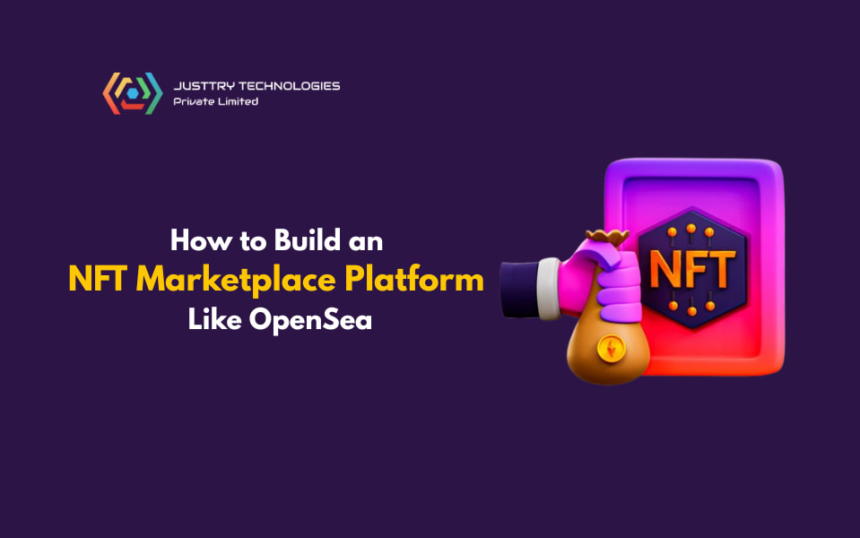The digital landscape is undergoing rapid transformation, with Non-Fungible Tokens (NFTs) at the forefront of this evolution. As business owners, entrepreneurs, and creators seek innovative ways to launch platforms akin to OpenSea, the demand for NFT Marketplace Development Services has surged. These platforms facilitate the trading of unique digital assets, offering users security, transparency, and speed.
Creating your own NFT marketplace might appear daunting, but with the right strategy and tools, you can establish a successful business in this thriving industry. Here’s a comprehensive look at how to design and launch an NFT marketplace similar to OpenSea.
A successful NFT marketplace needs to be user-friendly, secure, and scalable. Here are essential features that should be integrated into platforms like OpenSea:
- User-Friendly Dashboard: An intuitive interface allows buyers and sellers to navigate seamlessly.
- Advanced Search and Filters: These tools enable collectors to locate specific NFTs quickly.
- NFT Minting Options: Artists and creators should find it easy to create and list NFTs.
- Wallet Integration: This is crucial for secure payments and effortless transactions.
- Auction and Bidding Systems: Such features engage users and enhance sales.
- Decentralized Storage: This technology keeps NFTs secure and resistant to tampering.
- Royalty Management: It provides ongoing revenue support for creators.
The development of an NFT marketplace calls for a structured and strategic approach. Here’s a step-by-step breakdown of the process:
Step 1: Design an Intuitive UI/UX
Creating a clean and user-friendly design fosters trust and allows users to browse categories, search for collections, and manage their profiles effortlessly.
Step 2: Choose the Right Blockchain Network
The blockchain you select dictates your platform’s performance, cost, and scalability. While Ethereum remains a favorite, alternatives like Solana, Polygon, and Binance Smart Chain are also popular choices depending on business objectives and target audiences.
Step 3: Develop Smart Contracts for Secure Transactions
Smart contracts automate transactions, ensuring fairness and offering protection against fraud. They also guarantee that creators receive royalties for every resale, enhancing confidence among users.
Step 4: Create an NFT Minting Module
Streamlining the minting process will attract more creators and foster an active marketplace filled with new collections.
Step 5: Implement Wallet Integration and Payment Systems
Your marketplace should be compatible with popular crypto wallets such as MetaMask, Trust Wallet, and Coinbase Wallet, while also incorporating traditional payment gateways for crypto newcomers.
Step 6: Build Backend Infrastructure with Decentralized Storage
Securing NFTs with decentralized storage solutions like IPFS is essential for maintaining safety and transparency, thereby bolstering credibility.
Step 7: Test, Deploy, and Manage the Platform
Thorough testing of every feature is critical prior to launch. Post-deployment, continuous monitoring is necessary for updates and performance optimization.
To ensure your NFT marketplace generates sustainable revenue, consider various monetization strategies:
- Establish transaction fees on trades.
- Charge listing fees for creators wanting to showcase their NFTs.
- Offer premium memberships with additional benefits.
- Promote featured NFTs for a fee.
The outlook for NFT marketplaces is bright, especially with the availability of white label solutions that expedite the launch process. As adoption continues to grow across sectors like music, gaming, fashion, and real estate, the potential for flourishing opportunities is substantial.
Opting for a professional development company is essential for building a successful NFT marketplace. It is not merely a matter of coding; expertise in blockchain technology, design, and scalability is crucial. Collaborating with an experienced NFT Marketplace Development Company ensures that your platform remains secure, user-friendly, and primed for future growth. Professionals can adeptly manage smart contracts, wallet integrations, and comprehensive testing, significantly reducing time and avoiding costly errors. This partnership ultimately translates to a faster market entry and the peace of mind for business leaders.
NFT marketplaces are redefining the landscape of digital commerce, requiring careful planning, cutting-edge technology, and expert support to create a platform similar to OpenSea. A well-chosen development partner can streamline this journey.







